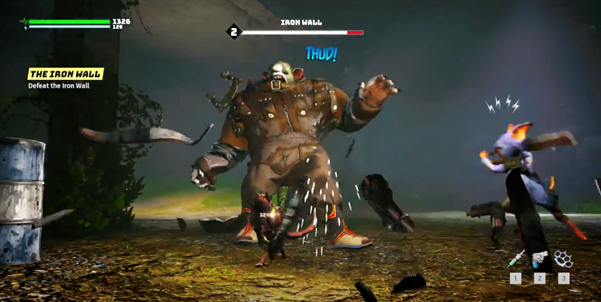In part one, we analyzed how subtitling helps to facilitate a sense of escapism, where the audience is transported faithfully into the world they see on-screen, whether it be films, TV, or video games. In this part two, we will look at the different types of voice-overs and outline the effects they may have on their audience, using a couple of my favorite examples.
Now, in a nutshell, there are three main types of voice-over: narration, ‘UN style’, and the rare ‘lektoring’.
Narration
When we think of ‘narration’, wildlife documentaries with an off-screen narrator – think Sir David Attenborough providing commentary as a lizard protects its eggs or a penguin constructs a nest – quickly come to mind.
But can you identify examples of narration used in video gaming? It’s quite hard. This is because, nowadays, there has been a growing trend in the industry to create realistic, immersive games, where the world is so life-like that, after a while, it’s as if you’ve been teleported into it – great for subtitling or dubbing but not for any form of voice-over.
Narration, on the other hand, provides something very different: contrast.
To answer our previous question, one example of narration in video gaming is 2021’s multi-platform RPG-meets-action-adventure title, Biomutant. In this great game, a narrator spoke with a stereotypical ‘received pronunciation’ British accent, which contrasted beautifully with the game’s lush, fantasy, post-apocalyptic world inhabited by gun-toting, kung-fu-fighting rodent-like creatures. The narration enhanced the game’s quirky flavors like lemon juice squeezed lovingly on fish. This wackiness enabled Biomutant to stand out in a gaming world filled with titles like Horizon and Ghost of Tsushima that, in comparison, were somewhat faithful to real-world locations and carried themselves in a serious manner.

Interestingly, Biomutant closely mirrored cult TV show Fargo in its use of narration, where, in season 2, British actor Martin Freeman made a small cameo as a narrator. Freeman’s British accent contrasted heavily with the show’s backdrop of life in rural North Dakota. And, once again, this brought out the show’s quirky, unpredictable, and, at times, surreal nature (season 2 even managed to somehow feature a spaceship interrupting a gun-fight without it being too weird, despite the fact Fargo is a crime-drama and not a sci-fi!)
The ‘UN Style’
Moving on to the second type of voice-over, we have the ‘UN style’, which is quite commonly used in news segments, speeches, or interviews. This form of voice-over is where the original speaker is heard talking lightly in the background while somebody speaks over them with a translated version of their dialogue in the foreground. However, its use would be extremely limited in video gaming due to its intrusive nature. But it wouldn’t be out-of-place if used for comedy value, in a series like Ratchet and Clank, or in a realistic, story-driven title like Heavy Rain – where you might find news segments in cutscenes.
‘Lektoring’
Finally, to complete our voice-over trilogy, we move on to the rare and interesting ‘lektoring’. Now, this is an unusual technique that is common in Poland, but remains a niche elsewhere. On-screen characters will speak their lines in their native language as normal, but then an off-screen narrator reads a translated version immediately afterward. As you can imagine, the result is incredibly distracting, especially in scenes with rapid interchanges of dialogue between characters.
However, lektoring has been used effectively outside of Poland. British and Irish readers familiar with cult 90s comedy Father Ted may remember it was used to great effect in a scene in one episode (‘The Passion of the Saint Tibulus’), where a Cuban priest spoke Spanish to Father Ted, which was followed by an English translation (voiced by British comedian Hugh Dennis). The result was clunky and intrusive, but brilliant, largely because of Dennis’ excellent timing and delivery.
The Takeaway
There is no denying that the landscape of video gaming has moved towards realism. And who can complain? It’s brought us amazing titles like Red Dead Redemption 2. Voice-over pulls the rug away from realism. It’s a powerful tool that enhances the quirky flavors of a film, TV series, or video game. It’s in these cases where game developers or film/TV directors want to take a step away from the realism that voice-over techniques may be the perfect condiment.



